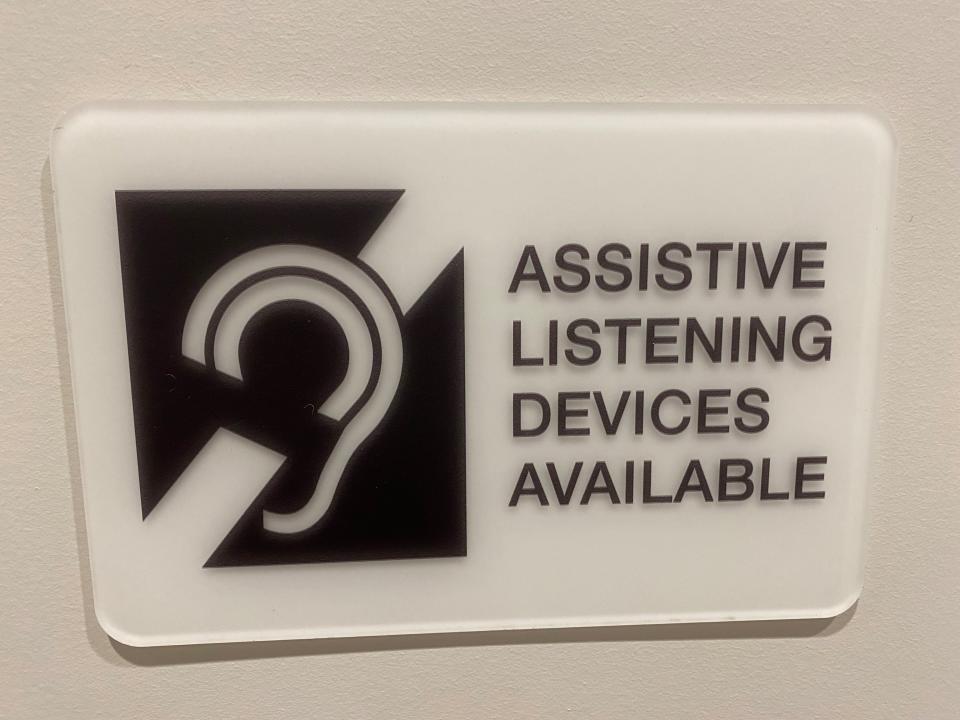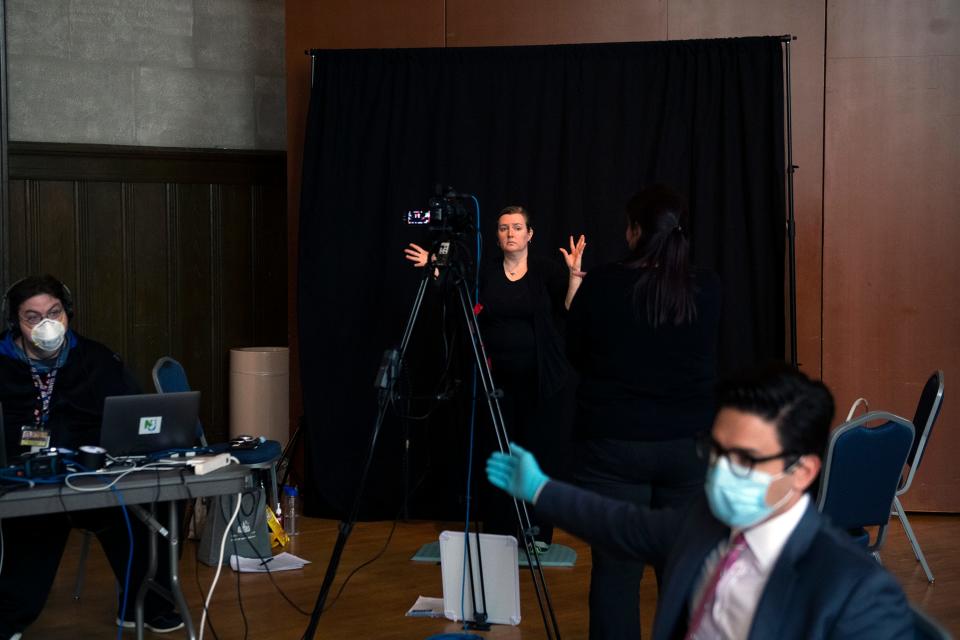NJ tackles barriers to critical services for hard of hearing with $944K in county grants
Barriers prevent New Jerseyans with hearing impairments from getting critical emergency and health information and taking part in community programs.
That's why the state's Division of the Deaf and Hard of Hearing asked counties to look at their libraries, police stations and government buildings to find inequities and ways to fix them.
The list of programs people are unable to access without help from others is a long one that includes counseling and health services, programs for veterans and seniors, community planning and more, according to the division.

The state this week announced $944,000 in grants to 13 counties – including Passaic, Essex and Hudson – that applied for a newly implemented program to help tackle the problems.
Passaic County will use $75,000 to have sign language interpreters and captioning on video feeds available at important county meetings. It will also install hearing loops or induction loops in its offices. The devices pick up sound and transmit it to hearing aids and cochlear implants.
“This is great news,” said Arlene Romoff, a Hackensack resident and past president of the Hearing Loss Association of New Jersey. Romoff lost her hearing as an adult and relies on cochlear implants.
Who received grants
The state awarded $75,000 each to Burlington, Camden, Essex, Gloucester, Hudson, Hunterdon, Middlesex, Monmouth, Ocean, Passaic, Salem and Somerset counties, while Cumberland County was awarded $44,000.
Hunterdon will use its money to enhance communication through language interpreters and captioning. The money will also go to translating health information into American Sign Language and installing hearing loops at the county courthouse, correctional facility, psychiatric hospital and human services offices.
“Have you ever considered how difficult it is for someone with hearing challenges to speak with a representative behind a plexiglass shield at an information window in a busy hallway of a county building?" asked Hunterdon resident Catherine O'Shea, who is hard of hearing.
"Even before masks, when speech-reading was possible, with all the noisy distractions around you, understanding the help the employee was trying to give was a major challenge.”
Mass transit: Two bills aim to make NJ transportation more accessible for people with disabilities
Chronic fatigue: COVID could launch an epidemic of chronic fatigue syndrome, doctors warn
Public meetings or court hearings in "unlooped" facilities were also a problem, O'Shea said. Without such accommodations, she is limited to doing business by email and misses out on “all the important gatherings," she added. "Going to them has proved a total waste of time and effort."
O’Shea is looking forward to stepping up to information windows where assistive devices — about the size of a 10 by 12-inch picture frame — will transmit sound to her hearing aids.

“Using our telecoils, we'll be able to share the jokes, the indignation, the joy – all the emotions experienced by our hearing neighbors at these events. We'll be able to be a genuine part of the community again,” she said.
Latisha Porter-Vaughn, co-founder of Hearing Loss Association of America-Essex County knows such limitations all too well. She was born with hearing loss.
"I am unable to hear public announcements in public spaces. The background noise diminishes my ability to understand speech. Hearing loops are only a fraction of the type of assistance I would need as I rely on closed captions and reading lips," she said.
Hearing loops would help her block out background noise. Minimally, some of these improvements will help hard-of-hearing people feel safe in these public spaces, Porter-Vaughn said. They also have the potential to do more.
“Removing communication barriers is vital in improving the quality of life for deaf and hard-of-hearing New Jerseyans so they can thrive in their communities,” said state Department of Human Services Deputy Commissioner Elisa Neira.
Gene Myers covers disability and mental health for NorthJersey.com and the USA Today Network. For unlimited access to the most important news from your local community, please subscribe or activate your digital account today.
Email: myers@northjersey.com
Twitter: @myersgene
This article originally appeared on NorthJersey.com: NJ gives grants to make services inclusive to hard of hearing people

